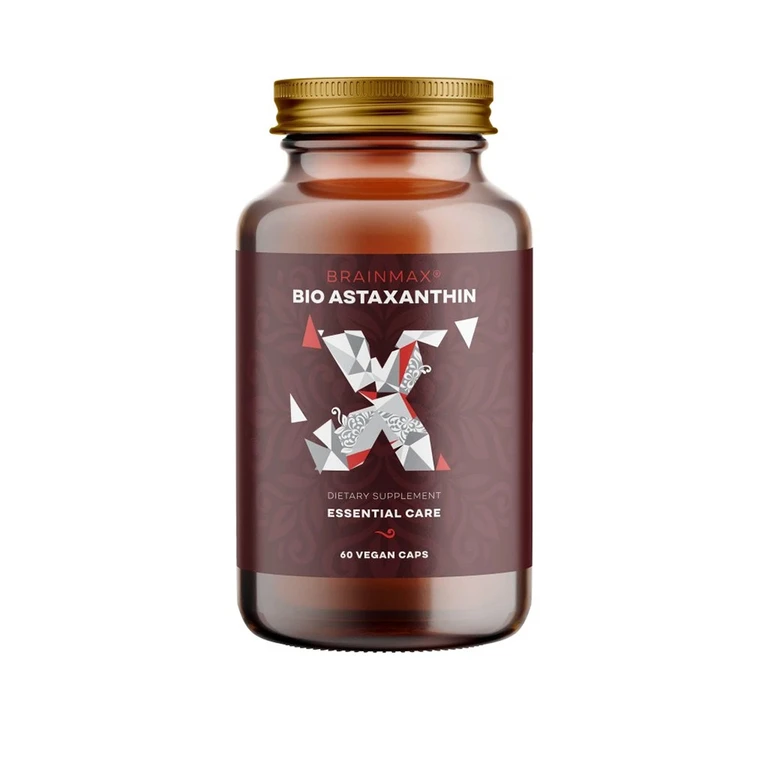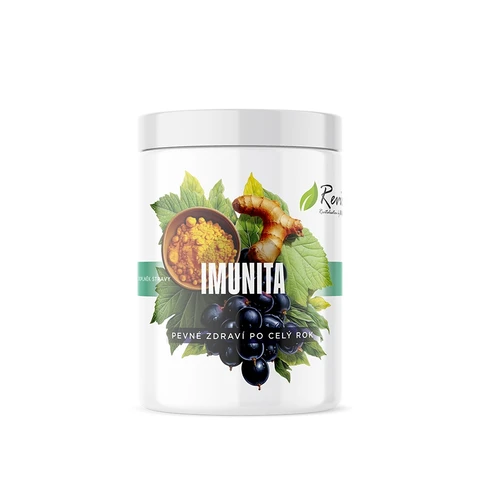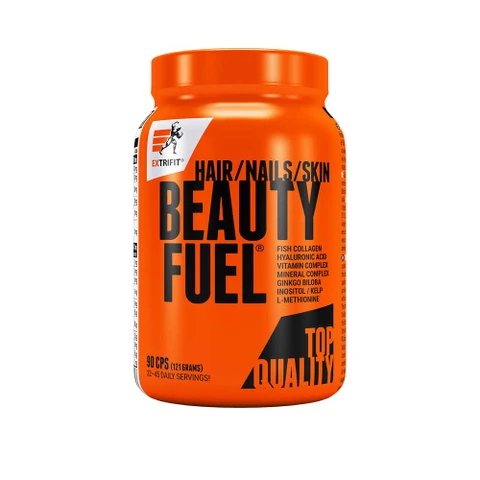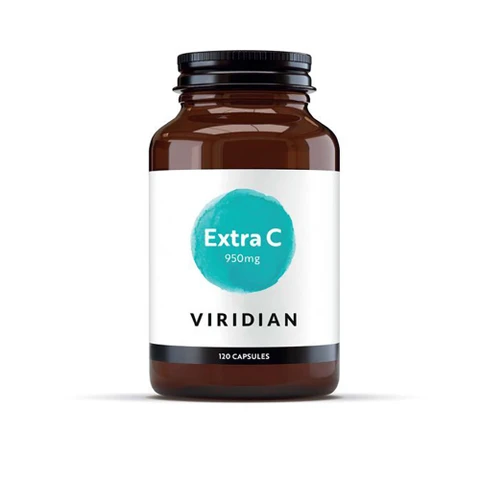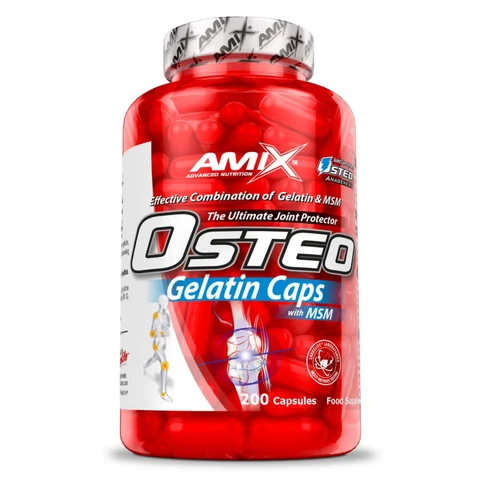BrainMax® Bio Astaxanthin 60 cps
8 mg astaxanthinu v každé kapsli v té nejčistší formě. Je extrahován CO2 extrakcí z řasy Haematococcus pluvialis.
BrainMax® Bio Astaxanthin 60 cps - Popis
BrainMax Astaxanthin byl extrahován z řas ekologicky pěstovaných Haematococcus pluvialis a jeho součastí jsou i přirozeně se vyskytující kartenoidy jako lutein, kanthaxanthin a beta-karoten. Maximální čistota produktu je zajištěna organickou výrobní technologií a následným testováním na těžké kovy. BIO kvalita astaxanthinu zaručuje až 50 krát vyšší biologickou dostupnost než jeho syntetická forma. Pro lepší absorpci je kapsle s astaxanthinem doplněna o panenský olivový olej, který má antioxidační vlastnosti. Díky rostlinným kapslím je produkt vhodný i pro vegany. Produkt neobsahuje žádné balastní látky.
Obsahuje v každé kapsli 8 mg astaxanthinu v té nejčistší formě a je extrahován CO2 extrakcí z řasy Haematococcus pluvialis, která je na množství astaxanthinu nejbohatší. Jedná se o přírodní produkt, který má až 50 krát vyšší biologickou dostupnost než jeho syntetická forma.
BrainMax Astaxanthin se vyrábí v kontrolovaném uzavřeném systému kultivace a je získávaný pomocí šetrné CO2 extrakcebez použití chemie. Tím je zajištěno, že produkt neobsahuje těžké kovy a jiné nebezpečné kontaminanty. Molekuly astaxanthinu jsou rozpustné ve vodě i v tucích a pronikají tak celou ochrannou lipidovou dvojvrstvou buňky.
Haematococcus pluvialis (Chlorophyceae, Volvocales) je jednobuněčná sladkovodní mikrořasa, která je součástí planktonu a je rozšířená v mnoha biotopech po celém světě. Je považována za nejlepší přírodní zdroj astaxanthinu. V přírodě má astaxanthin zářivě oranžovou barvu. Odtud přebírají tuto barvu také živočichové jako je losos, humr nebo krevety. Astaxanthin je často označován jako „král karotenoidů“. Největší množství astaxanthinu obsahuje jednobuněčná sladkovodní mikrořasa Haematococcus pluvialis. Když je tato řasa ve stresu, přejde do režimu přežití a vylučuje astaxanthin, aby kolem ní fungoval jako „silové pole“. Astaxanthin chrání řasy před změnami v jejich prostředí, jako je ultrafialové světlo, nedostatek výživy nebo změna teploty. Díky astaxanthinu přežije řasa i ty nejdrsnější podmínky. Astaxanthin je vytvářen mikrořasou jako přirozená ochrana proti UV záření.¨
Ekologicky vypěstováno i vyrobeno v České republice.
Přednosti BrainMax Astaxanthinu
- získávaný z mikrořasy Haematococcus pluvialis - přírodní a bezpečný
- lokální produkt z Krkonoš
- synergický efekt jednotlivých v řase se vyskytujících složek
- kontrolovaný uzavřený systém kultivace
- přísné hygienické podmínky výroby
- bez těžkých kovů a jiných nebezpečných kontaminantů
- Astaxanthin získaný z Haematococcus pluvialis je jediný, který je povolen pro lidskou potřebu
- jedná se o přírodní produkt v BIO kvalitě bez použití rozpouštědel
- extrakce
- CO2 bez použití chemie
Zdravotní tvrzení vztahující se k olivovníku Antioxidant
- krevní tlak
- normální hladina cukru v krvi
- přirozená obranyschopnost
- normální funkce dýchacího systému
- vylučování - ledviny - močové cesty
1. PARK, Jean Soon, Jong Hee CHYUN, Yoo Kyung KIM, Larry L LIME a Boon P CHEW. Astaxanthin decreased oxidative stress and inflammation and enhanced immune response in humans. 2010.
2. ITO, Naoki, Shinobu SEKI a Fumitaka UEDA. The Protective Role of Astaxanthin for UV-Induced Skin Deterioration in Healthy People—A Randomized, Double-Blind, Placebo-Controlled Trial. 2018.
3. GIANNACCARE, Giuseppe, Marco PELLEGRINI, Carlotta SENNI, Federico BERNABEI, Vincenzo SCORCIA a Arrigo Francesco GUIEPPE CICERO. Clinical Applications of Astaxanthin in the Treatment of Ocular Diseases: Emerging Insights. 2020.
4. KATAGIRI, Mikiyuki, Akira SATOH, Shinji TSUJI a Takuji SHIRASAWA. Effects of astaxanthin-rich Haematococcus pluvialis extract on cognitive function: a randomised, double-blind, placebo-controlled study. 2012.
5. GALASSO, Christian, Ida OREFICE, Paola PELLONE, Paola CIRINO, Roberta MIELE, Adrianna LANORA, Christophe BRUNET a Clementina SANSONE. On the Neuroprotective Role of Astaxanthin: New Perspectives?. 2018.
6. WOLF, Alexander M, Sadamitsu ASOH, Hidenori HIRANUMA, Ikuroh OHSAWA, Kumiko LIO, Akira SATAU, Masaharu ISHIKURA a Shigeo OHTA. Astaxanthin protects mitochondrial redox state and functional integrity against oxidative stress. 2010.
Jedná se o doplněk stravy.
BrainMax® Bio Astaxanthin 60 cps - Dávkování
- 1 kapsle jednou denně s jídlem
BrainMax® Bio Astaxanthin 60 cps - Hodnoty
| 1 pcs | |
| Astaxanthin | 8 mg |
| Organický olivový olej | 500 mg |
BrainMax® Bio Astaxanthin 60 cps - Složení
BrainMax® Bio Astaxanthin 60 cps - Upozornění
Skladujte při pokojové teplotě, na suchém a tmavém místě. Ukládejte mimo dosah dětí. Výrobek není určen pro děti, těhotné a kojící ženy. Nepřekračujte doporučené denní dávkování. Přípravek není určen jako náhrada pestré stravy. Neobsahuje lepek a je vhodný pro vegetariány a vegany. Dodržujte zdravý životní styl.
1. PARK, Jean Soon, Jong Hee CHYUN, Yoo Kyung KIM, Larry L LIME a Boon P CHEW. Astaxanthin decreased oxidative stress and inflammation and enhanced immune response in humans. 2010.
2. ITO, Naoki, Shinobu SEKI a Fumitaka UEDA. The Protective Role of Astaxanthin for UV-Induced Skin Deterioration in Healthy People—A Randomized, Double-Blind, Placebo-Controlled Trial. 2018.
3. GIANNACCARE, Giuseppe, Marco PELLEGRINI, Carlotta SENNI, Federico BERNABEI, Vincenzo SCORCIA a Arrigo Francesco GUIEPPE CICERO. Clinical Applications of Astaxanthin in the Treatment of Ocular Diseases: Emerging Insights. 2020.
4. KATAGIRI, Mikiyuki, Akira SATOH, Shinji TSUJI a Takuji SHIRASAWA. Effects of astaxanthin-rich Haematococcus pluvialis extract on cognitive function: a randomised, double-blind, placebo-controlled study. 2012.
5. GALASSO, Christian, Ida OREFICE, Paola PELLONE, Paola CIRINO, Roberta MIELE, Adrianna LANORA, Christophe BRUNET a Clementina SANSONE. On the Neuroprotective Role of Astaxanthin: New Perspectives?. 2018.
6. WOLF, Alexander M, Sadamitsu ASOH, Hidenori HIRANUMA, Ikuroh OHSAWA, Kumiko LIO, Akira SATAU, Masaharu ISHIKURA a Shigeo OHTA. Astaxanthin protects mitochondrial redox state and functional integrity against oxidative stress. 2010.

